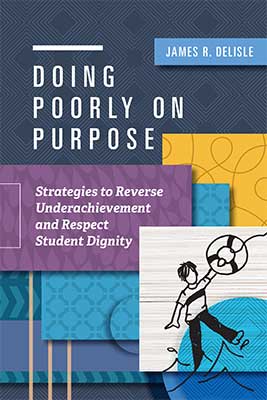
Doing Poorly on Purpose: Strategies to Reverse Underachievement and Respect Student Dignity
$32.95
$26.36 member price join now
About
With Doing Poorly on Purpose, veteran educator James R. Delisle dispels the negative associations and stereotypes connected to underachievement. By focusing on smart kids who get poor grades—not because they're unable to do better in school but because they don't want to—Delisle presents a snapshot of underachievement that may look far different from what you envision it to be.
Table of contents
A Little Light Research
Getting to A: Autonomy
Getting to A: Access